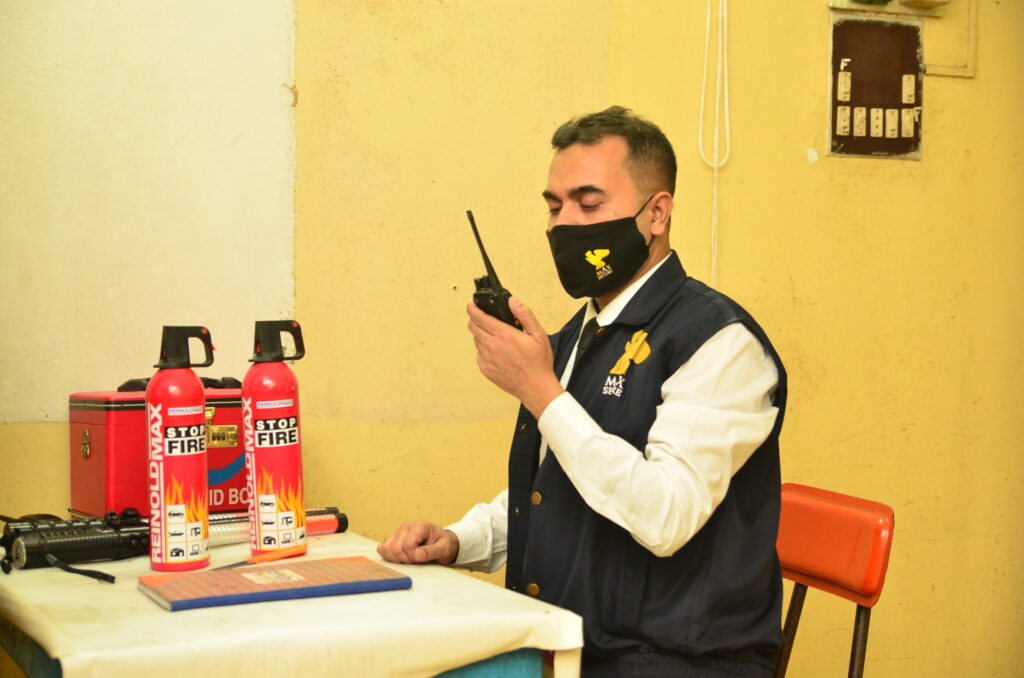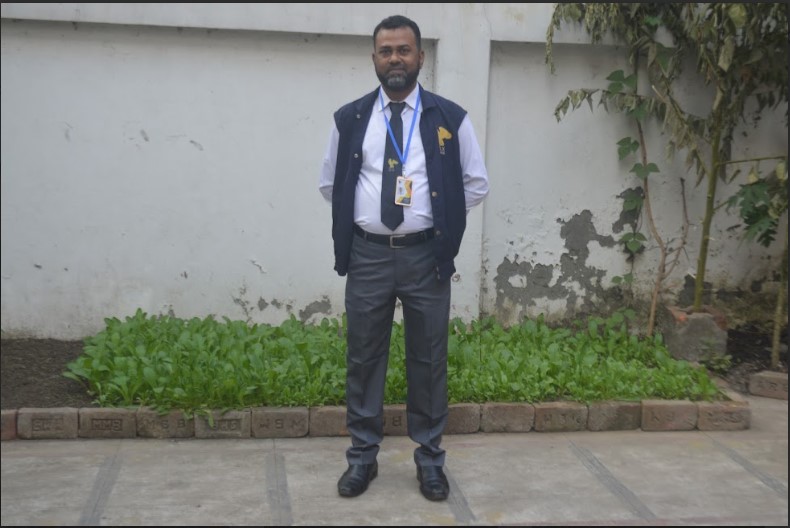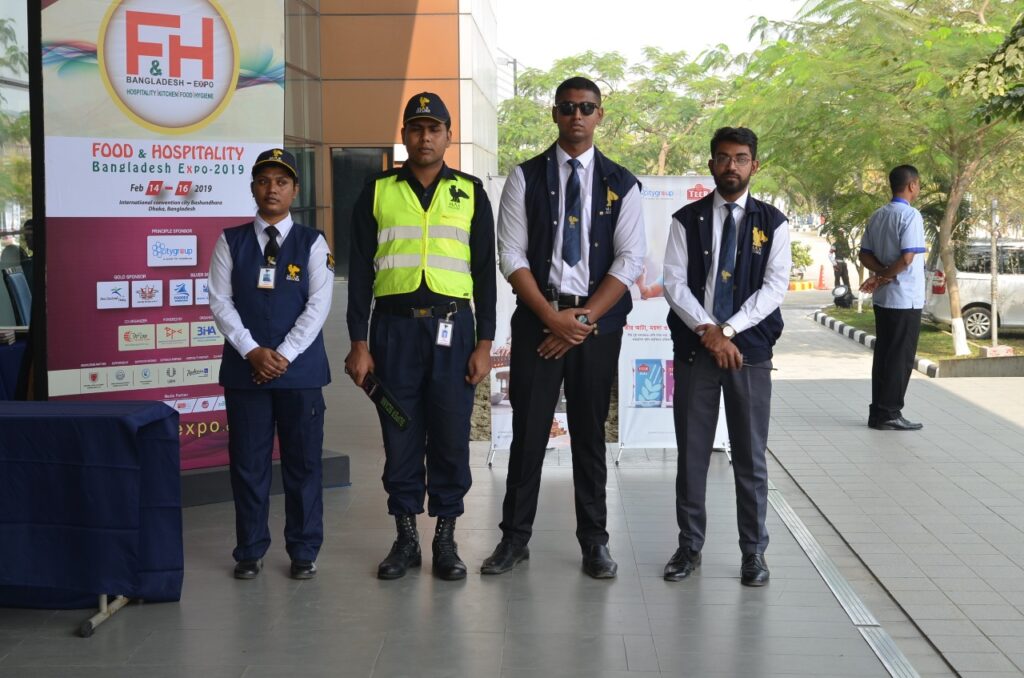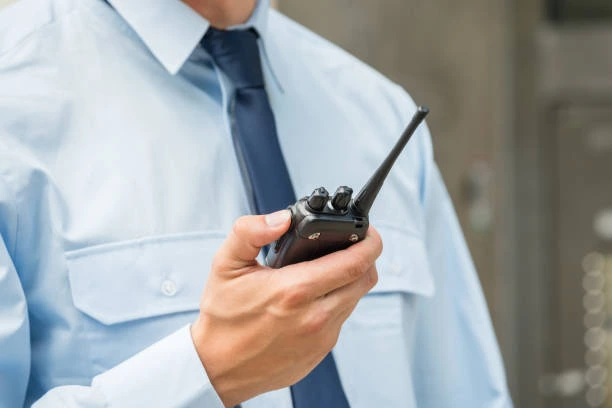Security Officer Skills and Qualities: What It Takes
Security can and should always be taken super seriously. It is especially important in this day and age when a security threat can come from anywhere. Therefore, you need a competent security officer who knows what to do and how to do it. But what are the security officer skills and qualities you need to look at when hiring one? That is what this article is all about.
In this article, we will be looking at some of the most essential skills and qualities a security officer must have and show before you hire them for your office, home, or event. We will discuss each skill so that you know why they are important, and we will also tell you some ways you can improve them once the officer is hired to keep ahead of any future threats.
Essential Skills for Security Officers
Mastering Communication Skills

Communication lies at the heart of practical security work. A security officer’s ability to convey information clearly through radio communication or interpersonal interactions is crucial. Verbal clarity and the skill to give instructions can create a secure environment.
The Art of Observation
Security officers are the eyes and ears of an organization. The ability to observe and analyze situations keenly is a foundational skill. Observational prowess is the bread and butter of any effective security work, from identifying suspicious behavior to noticing potential security risks.
Critical Thinking: A Key Asset
In the security world, knowing what to do and how to do it in a split second is vital. Critical thinking is about a security officer assessing any situation rapidly, analyzing the risks, and picking the best course of action. Mental agility can make all the difference in a high-pressure scenario.
Physical Fitness: Beyond the Uniform
Sure, a security officer won’t be continuously running around like in those action films, but they do need to be fit and ready at all times. They won’t know beforehand when something might happen, but they need to be able to handle the situation sometimes with strength. As such, they need a strong body with a strong mind. Stronger physical traits are especially important for those doing manned security services such as close protection details or armed security.
Qualities That Make a Great Security Officer
The Foundation: Integrity
Integrity is one of the essential security officer skills and qualities that any business or person should consider. Honesty, trustworthiness, and ethics should be a cornerstone of any security officer’s best qualities. People, both the employer and the general public, will interact with the officer daily, so they need to be able to trust them for their safety.
Reliability in Every Duty
Dependability is a crucial trait for a security officer. It means being reliable and consistent in carrying out tasks, sticking to schedules, and meeting responsibilities. This reliability builds trust, acting like a bridge between what is expected and what is delivered in the security world.
Professionalism: A Code of Conduct

Staying in character or maintaining your professional attitude at all times is a significant quality of any proper security officer. Some might think it’s just a formality, but it’s not; it’s a code of conduct. Maintaining a professional demeanor is not just a formality but a code of conduct for security officers. Maintaining a professional look, speaking well, and behaving appropriately boosts trustworthiness and shapes how the public sees security officers. It shows that they are the face of the organizations they work for.
Adaptability: Navigating Change with Ease
In a world that’s constantly changing, being adaptable is important. Security officers need to be prepared for unexpected challenges and be able to handle situations that keep changing. Adjusting to new security rules, technologies, and different surroundings is key to doing well in this job.
Read More: A Day in the Life of a Professional Security Officer
Training and Certification
Formal Education: Building the Knowledge Base
Although having a formal education is not always a must, it acts as a strong base. Security officers who have studied in related fields bring a wealth of knowledge to improve their decision-making and problem-solving.
On-the-Job Training: Practical Wisdom
At-work training gives security officers hands-on experience in real-life situations. It lets them use what they’ve learned in real scenarios, improving their abilities and preparing them for the challenges they might face.
Certification Programs: Validation of Expertise
Certification programs act as solid evidence of a security officer’s know-how. These programs usually focus on particular aspects of security tasks, ranging from handling crises to being tech-savvy. Certifications confirm skills and show a dedication to continuous improvement in the professional field.
Technology in Security
Surveillance Systems: The Eyes Beyond
Modern security often relies on advanced surveillance systems. Security officers must be adept at using and interpreting data from these systems to effectively monitor and respond to potential threats.
Cybersecurity Awareness: Safeguarding the Virtual Frontier
Now that the world is practically connected through the internet, cybersecurity awareness is more critical than ever before. An essential security officer’s skills are knowing about potential cyber threats, protecting sensitive information, and contributing to organizational security.
Legal Knowledge
Beyond the Badge: Understanding Laws
Security officers operate within a legal framework. Knowing the laws and rules that apply to security work is essential. This not only makes sure that the security measures work well but also that they are right and fair.
Ethical Conduct: The Moral Compass
Many don’t consider any security action ethical, but they should, especially security officers. Being able to do so will make them more trustworthy and improve their standing with the public.
Conflict Resolution
The Art of Calm: De-escalation Techniques
De-escalation is a skill that can prevent conflicts from escalating into potentially dangerous situations. Security officers trained in de-escalation techniques can defuse tension and maintain a secure environment.
Communication Mastery in Conflict: A Diplomatic Approach
Effective communication is pivotal in resolving conflicts peacefully. Security officers must master the art of communication, choosing words and tones that defuse tension and promote understanding. Knowing what to say and when is an important tool in the bag of a security officer’s skills and qualities.
Emergency Response
Beyond the Uniform: First Aid and CPR
Security officers often find themselves in situations where basic medical skills are essential. Knowing what to do in first aid and CPR can be super important. It means you can help right away until someone with more skills arrives.
Crisis Management: A Skill in Itself
Crisis management involves coordinating responses to unforeseen events. Security officers must be equipped to handle crises efficiently, implementing protocols to ensure the safety of individuals and property.
Teamwork in Security

Collaborative Vigilance: Working with Professionals
Security is a collective effort. Security officers often collaborate with law enforcement, emergency services, and other professionals to ensure comprehensive security measures. Being a team player is a vital part of a security officer’s skills and qualities.
Effective Communication within the Team
Clear communication within the security team is essential for coordinated responses. Information-sharing and collaboration enhance the overall effectiveness of security measures.
Customer Service Skills
Beyond Security: Openness in Action
Being friendly adds to a good and safe vibe. Security officers who are easy to approach make a place where people feel at ease asking for help or sharing their worries.
Helpfulness: Bridging Security and Service
Being helpful goes beyond enforcing security measures. Security officers who go the extra mile to assist individuals contribute to a positive perception of security services, fostering a sense of community safety.
Staying Updated on Industry Trends
The Learning Never Stops: Continuous Learning
The security world is ever-changing, regularly bringing forth new challenges and technologies. Ongoing learning ensures that security officers are aware of the latest trends in the industry, allowing them to adjust to the constantly evolving security requirements. This is why they are one of the best security service providers in Bangladesh.
Elevating Skills: The Role of Professional Development
Supporting the growth of security officers through professional development helps them improve their skills and stay ahead in their field. Participating in training programs, workshops, and seminars contributes to their continuous learning, promoting ongoing career progress.
Conclusion
Security officer skills and qualities can’t be limited to only the ones we discussed. Different situations demand different skills. However, the ones we covered should be enough to help you choose the best security officers who can handle most problems you might face.
The number and types of threats your security officers might face increase. Keep your security officers at the forefront of these threats by improving their training and adding new skills and qualities. The better your officers are, the safer they will make you and the public they serve feel.
For professional security services in Bangladesh, consider Max Secure Ltd. Their commitment to excellence and continuous learning makes them one of the best security service providers in the region.
FAQs
How can aspiring security officers develop their skills?
Aspiring security officers can develop their skills through engaging in relevant education, seeking on-the-job training, and participating in certification programs. Never stop learning! In the security world, always learning is necessary to stay ahead and do the job well.
Why is adaptability crucial for security officers?
Adaptability is crucial because it enables security officers to navigate unforeseen challenges and changes effectively. Adaptability ensures that security measures remain relevant in a dynamic environment.
What technologies are commonly used in the field of security?
Commonly used technologies in the field of security include advanced surveillance systems, access control mechanisms, and cybersecurity measures to safeguard both physical and virtual spaces.
How do security officers contribute to community safety?
Security officers contribute to community safety by maintaining a visible presence, enforcing security measures, fostering positive community interactions, and collaborating with other professionals, including law enforcement and emergency services.
Is physical fitness a prerequisite for becoming a security officer?
While not always mandatory, physical fitness is advantageous for meeting the job’s demands. Physical fitness enhances an officer’s ability to navigate various situations and respond effectively when required.

